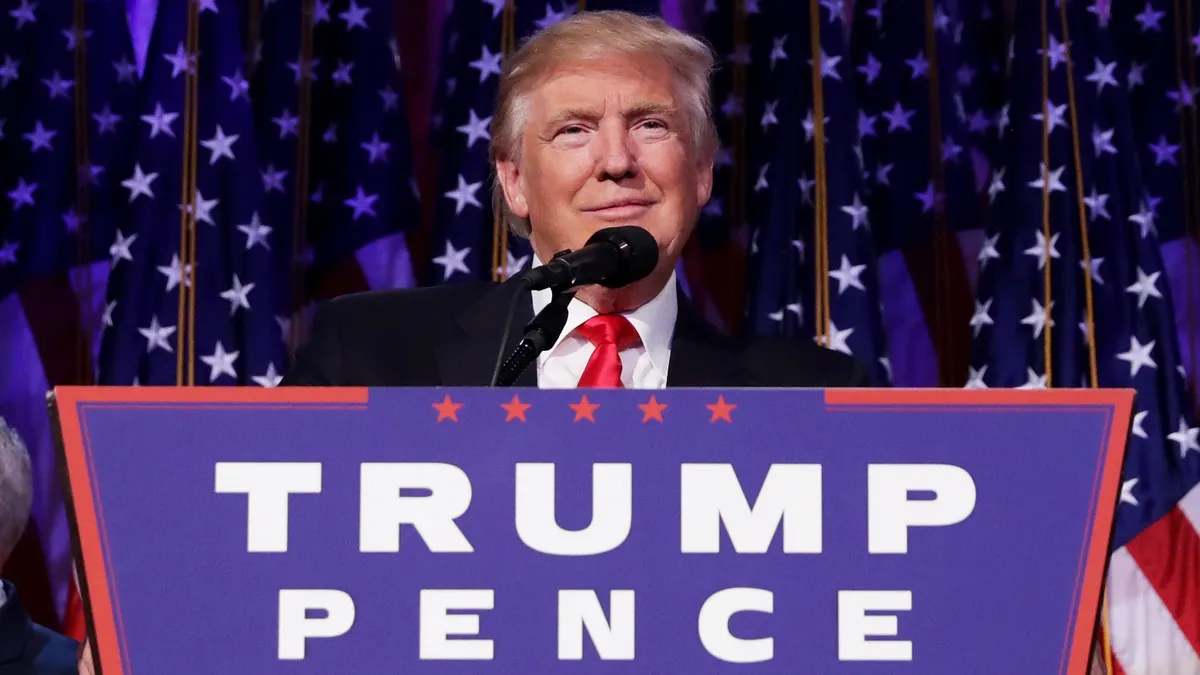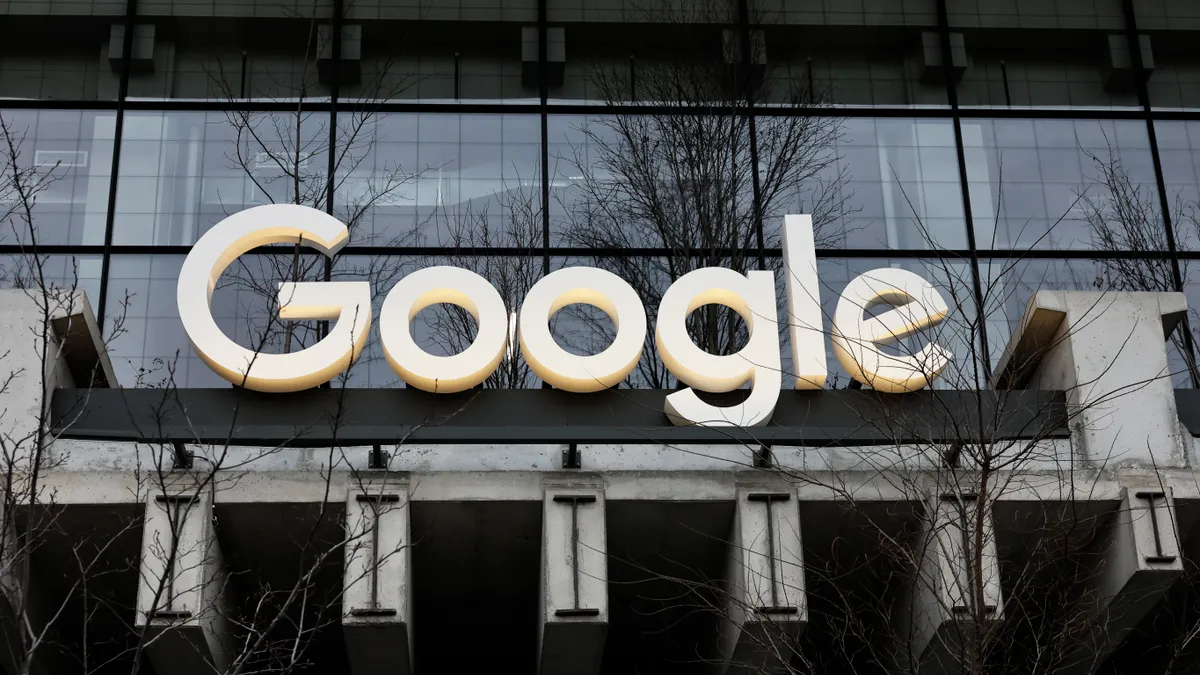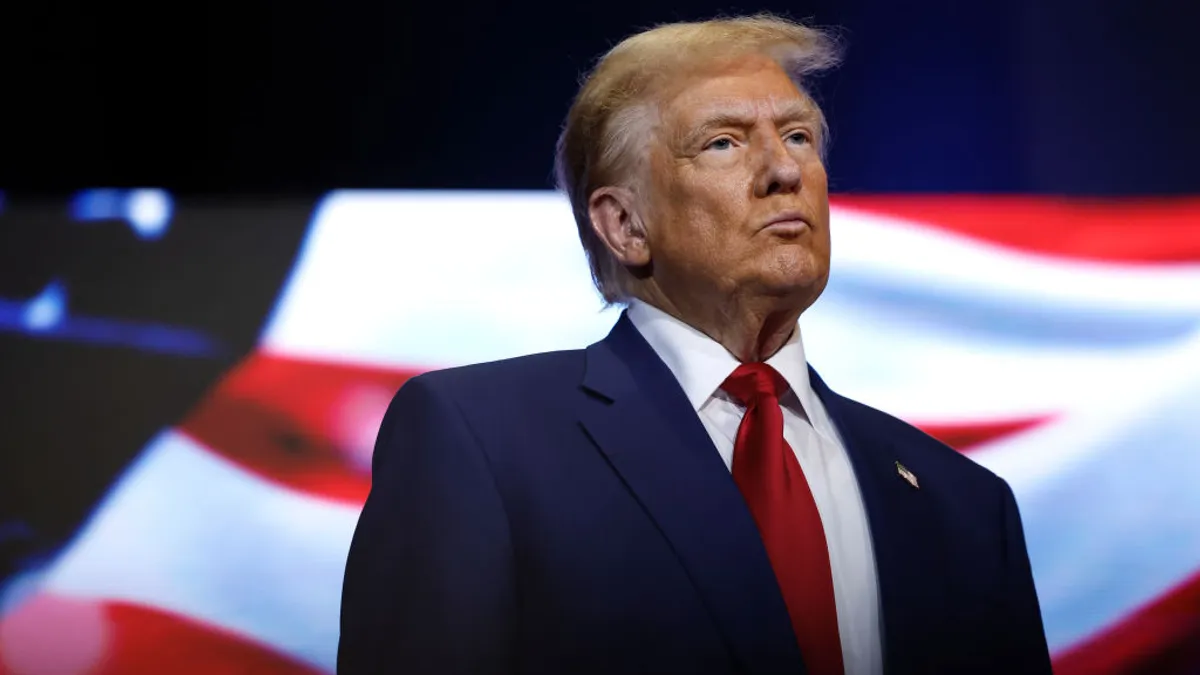How will the Trump victory impact other industries? Here's what we know about the President-elect.
In the early hours of Wednesday morning, the Associated Press called the election, declaring Republican nominee, now President-elect, Donald Trump the winner of the 2016 U.S. presidential election. The results surprised political pundits and analysts around the world, with many questioning how projections were so wrong.
But the election is over and Democratic nominee Hillary Clinton officially conceded with a call to Trump. As a result, many are wondering what’s next? Much is yet to be determined, but the wheels for a peaceful transition of power are already set in motion.
Enterprises across the country are now assessing exactly how a Trump presidency will impact their industries. Business technology leaders, in particular, are looking at how immigration policies will impact the tech labor market and how Trump will shape cybersecurity policy in an era where technological innovation is advancing at a rapid pace and regulatory legislation struggles to keep up.
So, what will technology look like in Trump’s America?
On the issues
"On the one hand you have one party that has put out a platform on technology, the GOP platform, but the candidate himself has not been terribly forthcoming about details," said Liz Hyman, executive vice president of public advocacy for CompTIA. "At the outset, it’s hard to predict exactly what that would look like."
The Republicans were much slower to figure out and capitalize on the use of technology, according to John Parkinson, Affiliate Partner at Waterstone Management Group. "No one is going to argue the STEM portfolio is not important, but they haven’t invested as much in it."
For government in particular, it is possible that Trump will continue President Barack Obama’s technology agenda, just as it is likely Clinton would have. "If you look at technology in government, the story is quite good and is likely to continue being quite good, whichever party wins," Parkinson said. There have been efforts to invest in and progress e-government and those kind of reforms will likely continue.
But there are certain areas where Trump has promised changes that would improve business posture in the U.S., including regulatory reform so institutions aren’t as inhibited by policy.
"Trump has suggested that he would like regulatory reform and sort of clearing the red tape that hampers businesses in general, and presumably that applies to tech industries as well," Hyman said.
Prior to the election, both the Democrats and Republicans ran platforms promising changes to American trade policies, neither of which seemed particularly pro-trade. As Hyman notes, the U.S. exports nearly $300 billion technology goods and services every year. "It’s a very important part to the technology industry, and neither the Democrats or Republicans are giving a lot of comfort that they’re going to focus on a pro-trade agenda that allows our industries to find markets overseas."
With news of Trump pulling ahead in the election, Tuesday night, stock futures sharply declined, with S&P 500 futures slumping 5%, according to The Wall Street Journal. Part of the market volatility stems from uncertainty about what global trade will look like during a Trump presidency. No matter who took office, experts were already concerned about how business technology exports would fare.
Trump has also promised to reform the labor market across sectors. During his campaign, Trump lambasted the current state of immigration in the U.S., promising that American jobs and wages would come first. Many tech companies could feel the impacts of such reforms from changes to the current H-1B program. For some, this has sparked concerns over access to the high-skilled tech labor market.
"But, of course, there are the obvious red flags out there of immigration reform. High-skilled immigration is a big piece of the puzzle for any business that’s looking to try to retain or build a good skilled base to innovate," Hyman said. "Clearly that’s not something that’s going to happen in a Trump administration."
Cybersecurity in focus
Cybersecurity has also been a consistent pressure point during the election, with some even questioning whether they could trust the results. To help ensure the cybersecurity for citizens, businesses and government agencies alike, Trump has called for the creation of a Cyber Review Team that can provide recommendations about how to safeguard "different entities with the best defense technologies tailored to the likely threats," according to his platform.
"Both of [the candidates] have talked about trying to more positively impact or defend against laws overseas that are antithetical to our cybersecurity standards, in China and elsewhere," Hyman said. "In fact, the GOP platform, has been more, I think, specific about that. So that’s positive."
But for some, there are concerns that the U.S. is not moving fast enough on its cybersecurity posture. "The threat landscape is evolving much faster than we have seen before," Parkinson said. The "bad guys" are just as smart, have enough money and don’t follow the rules, making them real threats to the U.S.
There is also the increasing potential for cyberwar, where businesses and citizens could be caught in the cross hairs of nation-state actors.
"If this does become a war, it doesn’t matter who is in the White House," Parkinson said. "It’s going to be every company for itself."
Innovating too fast
No matter who is in office, the U.S. government has struggled to keep pace with technology. The government's IT infrastructure is shackled by legacy systems, some of which still use floppy disks, and cyberattacks that have put record integrity into contention.
To some extent, Washington is irrelevant when it comes to advancements in technology, according to Parkinson. The government is constantly challenged to craft policy that can regulate an industry that innovates at such a rapid pace. So for building a robust tech economy, it is often better to let market decide.
"You can’t entirely say what the government does doesn’t matter," Parkinson said. "The climate in which innovation can flourish and is encouraged does matter." Part of that includes access to an advanced technology workforce.
As far stances on encryption and ideas walling off parts of the internet are concerned, the industry is generally more in favor of the Democratic policies, according to Hyman. How the Republicans choose to navigate these issues, however, will largely depend on who Trump appoints to leadership positions and advisor roles.




















